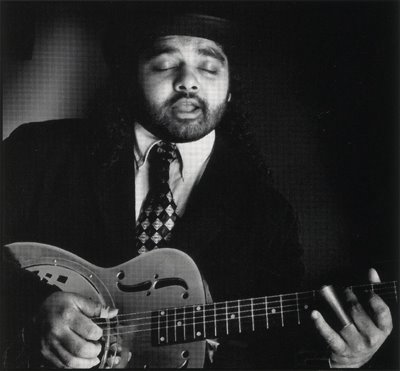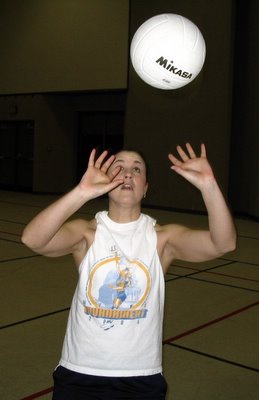OpinionBy John Hickey West Virginia University at Parkersburg is one of more than 700 colleges and universities, according to
Vday.org, where, “as part of the 2006 V-Day College Campaign,” students presented a benefit production of Eve Ensler’s
The Vagina Monologues to raise awareness and funds for local organizations working to end violence against women and girls.
Vday.org says, “V-Day’s mission is simple. It demands that the violence must end. It proclaims Valentine’s Day as V-Day until the violence stops.”
The play and the political movement growing from the play are increasingly controversial. Some see
The Vagina Monologues as the center of a vitally important cause, “the bible for a new generation of women,” as the WVUP program for its Feb. 16 performance says. There is no doubt that the movement has raised funds to combat violence against women, but some nevertheless see the play and its politics as an insidious undermining of our cultural values.
As the New York Times reported Feb.18, some religious schools have banned the play. Providence College president Rev. Brian Shanley said, “Far from celebrating the complexity and mystery of female sexuality,
The Vagina Monologues simplifies and demystifies it by reducing it to the vagina.”
Christina Hoff Sommers, author of
Who Stole Feminism?, says, in
Sex, Lies, and the Vagina Monologues, “Bullying a nation into giving up one of its most charming and hopeful holidays does nothing to help women. It’s a divisive and alienating cause.”
Last May in the National Review, Sommers said, “V-Day has now replaced Valentine’s Day on more than 500 college campuses…. The high point of the day is a performance of Ensler’s raunchy play, which consists of various women talking in graphic, and I mean graphic, terms about their intimate anatomy. The play is poisonously anti-male. Its only romantic scene, if you can call it that, takes place when a 24-year-old woman seduces a young girl. (In the original version she was 13 years old, but in a more recent version is played as a 16-year-old.) The woman invites the girl into her car, takes her to her house, plies her with vodka, and seduces her. What might seem like a scene from a public-service kidnapping-prevention video shown to schoolchildren becomes, in Ensler’s play, ‘a kind of heaven.’”
I attended the WVUP Feb. 16 production, where the audience was invited to stay after the performance and talk with the actors and with director Barbara Harris.
The young women who performed the play clearly had worked devotedly to bringing the monologues to the stage, in a permanent personal achievement for each of them. I think the play as a whole was well done, but one aspect of the setting is unfair to the actors.
In parts of the play, the actors portray erotic communication with other women, acting out orgasm and describing homoerotic sexual encounters. Other parts of the play seek communion in sorrow or anger or in the tenderness of women for each other, but the connection is primarily sought with other women. I have no objection to this; I think it’s a good thing to have events done by women for women, and I don’t seek here to influence how women conduct these events. With an audience of all women, I imagine the actors could find the play a very freeing experience,
But the actors seemed blocked by the presence of men who could be their teachers or the fathers or uncles of their friends. I brought up in the discussion afterward the image of a male teacher talking with a young woman about her vagina. Everyone on stage seemed to strongly agree it would be an inappropriate conversation. But if a conversation with certain men about her vagina is inappropriate, then having those same men in the audience is going to block a young woman actor in this play from freely expressing herself, and I don’t think that in this case the solution is for the actor is to give herself over more completely to the role, any more than she would want to override a feeling of inappropriateness by giving herself over more completely to a conversation with a friend’s uncle about her vagina.
A man in the audience, especially a man who has been a father or teacher to girls, will feel (or should feel) morally constrained from entering into the erotic communion the play seeks with women or into the celebration of sexual profligacy portrayed by these apparently unmarried young women whose reputation and chasteness and indeed virginality (in at least the psychological sense) he feels obliged to nurture and respect. He will want to support the actors but he will feel morally obliged to psychologically (if not physically) withdraw from the play, because he has no place in the eroticism between women or in the discussion of these young women’s genitals. Even when he tries to disappear into his seat, though, he will remain a voyeur, and this disruption of his participation will interfere with the actors’ communication with the audience and thus harm the play. To the extent that men in the audience are lecherous, the situation of course becomes even worse.
Though I regret the absence from the play of any mention of a good relationship between a woman and a man, especially given the movement to make this a perennial Valentine’s Day play, I don’t contest the play’s role as a vehicle for women to communicate with each other. But inviting men to this play is like inviting men off the street to your daughter’s pajama party and urging her to talk to them about her genitals and sexual urgings. Urging her further to talk about violence to women does not solve the problem I’m addressing, which in fact weakens the focus on violence to women.
I suggest that a disclaimer be published which lets people know that it may be morally inappropriate for men to attend
The Vagina Monologues. Women must decide whether it is morally appropriate for women.






